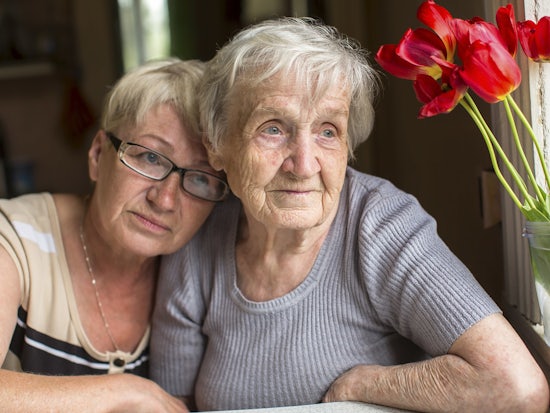Health and wellbeing of unpaid carers a growing concern
With an estimated value of $60.3 billion each year, there is no doubt that Australia’s population of unpaid carers play a significant role in society, but what research and experts continue to tell us is that unpaid carers are continually ignoring their own health and wellbeing.

Carers continue to put the needs of those they care for before their own (Source: Shutterstock)
Of the nation’s 2.7 million unpaid carers, around 856,000, or 32 percent, are primary carers, who are almost all caring for a family member and putting the needs of this person above their own.
More than half of these carers are over the age of 55.
The statistics also show that carers have the lowest levels of wellbeing of any Australian group, and, with Carer’s Week (15-21 October) just around the corner, Carers South Australia (SA) Chief Executive Officer David Militz is reminding carers that their health is just as important as that of those they care for.
“The number of those [carers] admitting to putting their needs aside is huge,” he says.
“It is all too common for carers to put the needs of loved ones above their own, even when it comes to their health and wellbeing.”
He adds that a recent survey conducted in SA among 1,700 carers shows that 90 percent admit to putting the needs of the person they care for before their own.
“With carer wellbeing significantly lower than that of those not caring, it’s important that carers remember and take the time to look after themselves,” he says.
“Caring takes just as equal a toll on carers emotionally as it does physically which is why there are supports like counselling services and respite and care options that we recommend people make use of.”
Mr Militz says there are Commonwealth Respite and Carelink Centre services across the country funded and run by the federal government as well as a national hotline that will connect you to a service specific to where you live, and provide information on support close to you.
In Victoria, more than 4,000 carers are supported by not-for-profit aged and disability services provider Villa Maria Catholic Homes.
Barbara Goold lives in Victoria and, with the support of her husband, she cares for her 82-year-old mother Joyce in a full time capacity. She is also one of the carers who regularly utilises the respite support offered by Villa Maria Catholic Homes.
Her mother visits the St Bernadette Community Respite House three days a week and has been doing so for the past three years.
Ms Goold says she started using the respite service after reaching out for help when caring for her mum alone became both physically and emotionally too great. She says the use of the service just a few days a week gives her and her husband some vital respite from their full time role as carers.
“Mum can’t do anything for herself… we feed and wash her, she can’t walk… I was in a bit of stress and just needed a break,” Ms Goold explains.
With her mum looked after, Ms Goold says she has been able to re-join the gym and help improve her own back health, which was suffering under the strain of lifting her mum. Both her and her husband are also now able to enjoy everyday activities that most people take for granted, like going to the movies or out for walks.
“It’s good to have a bit of time out – you couldn’t function [as a carer] otherwise,” she says.
“I can drop her [mum] off and walk away knowing she’s in good hands.
“Without the support, I’d have to put mum in full-time care.”
The respite centre also offers emotional support for carers and clients, longer opening hours and provides more flexibility than what is usually offered at day centres; giving carers more time away from their caring role – even allowing some to work if needed.
Mr Militz says that like Ms Goold, many carers leave asking for help until it’s almost too late.
“I cannot say how important it is for carers to call someone, find help and talk to someone about the support that is needed,” he says.
“It is always hard to ask for support but most of the time people are asking in times of crisis and don’t ask for help and support to make sure that they are prepared – this is what is needed.”
With the anticipated growth of older Australians expected over the coming 10-20 years, Mr Militz says the role of unpaid carers and the number of unpaid carers is set to soar.
“Carers are the safety net of the community and it is important we care for and keep that safety net healthy,” he says.
“We know carers have a huge role to play especially as more people are finding it difficult to access aged and home care – this means that the load on carers is and will become greater.
“We rely quite heavily on our informal carers and into the future there is going to be a much greater need for them; especially with more and more people wanting to stay living at home.
“Services like respite are really important because carers can recoup and regenerate – it’s a chance to keep going.
“For those carers not sure where to start looking for the support that they need now or may need in the future I recommend they contact our 1800 number which will connect them to state-based support and information.”
Access to state-specific carer support information is available by calling Carers Australia on 1800 242 636.























